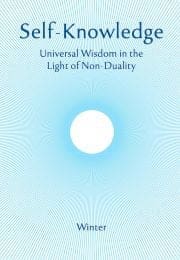Educating the Mind
Men’s natures are alike. It is their habits which carry them far apart.
Confucius
The Chinese sage, Mencius, was once asked by a disciple how it was that while human nature is common to all men, some are great and some small.
Mencius replied that the important point was habit—the habit of following either our lower or higher faculties. Inferior minds, he explained, were those which followed only the bidding of the senses. The inferiority lies in the fact that the function of the senses is inevitably determined by their objects; when pleasurable objects impinge on them, they cannot help following blindly wherever they lead; in the same way, such minds are bound to be repelled by painful or unpleasant experiences.
Greatness involves the cultivation of our higher faculties. This means utilising them constantly so that they become highly developed.
The faculty of the mind, for instance, is thought. Focused, conscious thought is conducive to achieving its object, but when it is not so employed, it fails to achieve anything. So it is with all our faculties. They are, says Mencius, implanted in us by nature. If we take our stand from the first on the higher part of our being, the lower part will not be able to rob us of it. It is simply this that constitutes the great human being.
By not developing our power of thinking, the mind fails to achieve anything; by exercising it in thought, its powers of conception, its faculties of reason, intuition and will, can be enormously developed. Indeed the potentialities of the mind are almost infinite compared with the possibilities of achievement in the physical realm. One has only to think of the geniuses of history to realise what vast riches are lying hidden within the mind’s depths, waiting to be called forth by those who devote themselves to the mastery of this instrument—one’s own mind.
The important point is clearly habit. Unless a habit of exercise and training is formed, the full possibilities of achievement cannot be realised.
But there is more than the mere fact of habit involved here. There is the question of what is most worthwhile, and Mencius stressed that it is the habitual cultivation of our higher faculties which is most worthy to be practised.
Subscribe or enrol for free guest access to read all of this article and Self-Knowledge online.
Already subscribed or enrolled? Log in:


